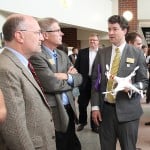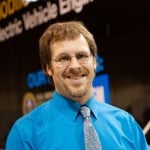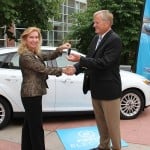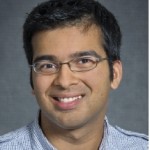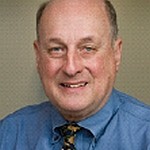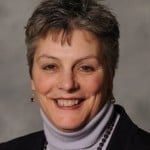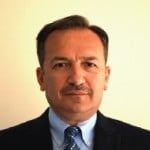 The ME-EM graduate seminar speaker for Thurs. Oct. 10 at 4:00 in 112 MEEM is Dr. Bashar AbdulNour, the technical manager of the Thermal Analysis and Validation Group at General Dynamics Land Systems. His presentation is entitled ‘An Engineering Insight into Modern Product Development’.
The ME-EM graduate seminar speaker for Thurs. Oct. 10 at 4:00 in 112 MEEM is Dr. Bashar AbdulNour, the technical manager of the Thermal Analysis and Validation Group at General Dynamics Land Systems. His presentation is entitled ‘An Engineering Insight into Modern Product Development’.
Modern product development involves a disciplined process with milestones and key design maturity deliverables. In recent years, the complexity and pace of product development has followed the advancements in science and technology, customer demands, and increased market competition. The process starts with translating the requirements gathered from the Voice of the Customer (VOC), government regulations, and corporate standards into engineering specifications. Design concepts are selected and narrowed down to the final design based on the judgment of the collected data. The complexity can be managed by applying systems engineering principles to provide the framework throughout the process. A lean and structured engineering approach with focus on the target customer has been deployed in many industries as a change agent. Six Sigma emerged as the primary enabler to help improve design and manufacturing efficiencies and deliver value to the entire enterprise. Experimental design and failure mode avoidance techniques are increasingly used to produce a robust design that delivers the required performance despite noise conditions.
The continued expansion in the use of modeling and simulation (M&S) tools in design and development pushed the pace even further in order to decrease the time-to-market and reduce cost by replacing expensive prototyping and testing. Also, the increased utilization of M&S moved its implementation further upstream
in the development process. High-fidelity simulations such as CFD and thermal modeling are being used to accurately predict complex airflow and temperature distributions. Multi-physics modeling and fluid-solid interaction are being utilized to simulate complex problems such as phase-change and NVH. Coupled simulations using several tools are being automated to run design iterations and “what if” scenarios; for example, lumped-parameter (1-D) simulation for thermal loading along with CFD solution for vehicle interior and underhood airflow. In addition, in some industries such as off-highway, military, and space vehicles, M&S became quite critical since it is prohibitively expensive to build a large number of prototypes. Alternatively, prototypes are made available only for design validation and sign-off. The innovative use of M&S for virtual prototyping and certification will allow for more design iterations yielding optimized performance, reduced power consumption, and enhanced quality.
Dr. Bashar AbdulNour is currently the technical manager of the Thermal Analysis and Validation Group at General Dynamics Land Systems. He leads a team of analysis and testing engineers working on the design and development of thermal systems for all types of military vehicles. He also manages three state-of-the-art thermal laboratories. Concurrently, he is an Adjunct Professor at Wayne State University. His areas of expertise are Computational Fluid Dynamics (CFD), thermal management, and systems engineering. He is a certified Design for Six Sigma (DFSS) Black Belt. Dr. AbdulNour holds three graduate degrees from Michigan State University including a Ph.D. in Mechanical Engineering. He was a tenure-tracked Assistant Professor of Mechanical Engineering at the University of Wyoming. He later joined Ford Motor Company where he developed extensive knowledge of vehicle climate control and powertrain cooling engineering, powertrain attributes, CAE, as well as the technical methods used in product development. His hands-on work with analysis and simulation tools, technology development, and testing techniques earned him diverse engineering and management expertise with progressive responsibilities. Dr. AbdulNour has over 53 published journal and conference papers. He has been the chairman of twenty-three technical sessions at national and international conferences and has given more than 60 technical presentations. Also, he has been the co-organizer of the Climate Control Session of SAE International Congress since 2001, and was the technical keynote speaker in 2010, 2011, and 2013.

